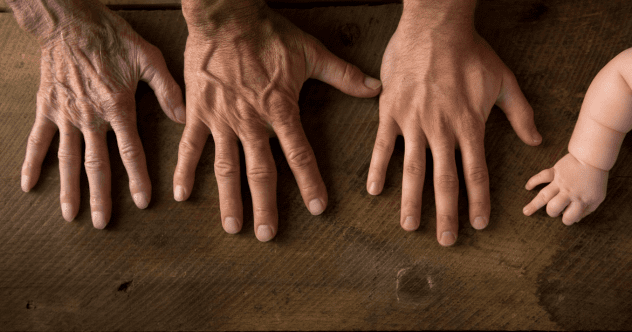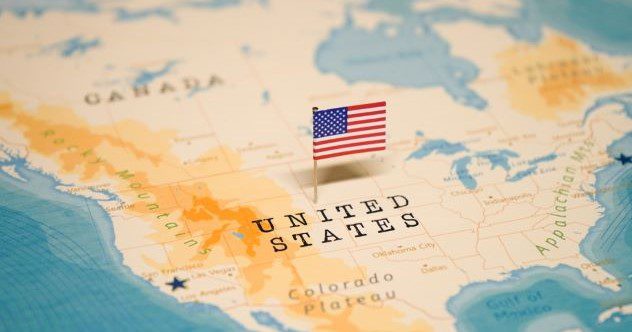
www.thegospelcoalition.org
See a Tough Neighborhood Through God’s Eyes
When pastor Jay Harris first went to look at the inner-city building that would house his church‚ it was discouraging. The parking lot was gated for safety. The interior was grimy and falling apart. The store across the street was vacant. The building to the south was boarded up.
It also wasn’t big enough‚ so he asked about renting a nearby home to use for children’s ministry. As the house owner was showing Harris around‚ he was also having window air conditioner units installed.
“I don’t think I got down the block and they were stolen‚” Harris said. And in Brentwood‚ a neighborhood where the median household income is less than $24‚000‚ it’s no wonder.
Inside The Ville Church’s renovated space / Courtesy of Jay Harris
Still‚ Harris bought the building and rented the house.
He’s not scared of hard places—he was born into a rough New Jersey neighborhood‚ spent his teen years bouncing in and out of juvie‚ and grew up to be a drug dealer in Jacksonville‚ Florida. He was 23 years old when he got into an altercation with somebody.
“I was going to kill the guy for revenge‚” Harris said. “But my house was busy with people because it was the hang-out spot‚ and we sold drugs. I needed a quiet place to think‚ to sit and process how I was going to do this murder.”
Hey‚ he thought‚ a church is quiet.
It was—he could sit in the back of the large‚ charismatic‚ predominately white service and think while the pastor preached. “I snickered at the people praising God‚” he said. “But within a couple of weeks‚ I was staring at them‚ completely jealous of their joy.”
God saved Harris at that church. He struggled his way out of the party scene‚ started a T-shirt shop‚ and married his girlfriend‚ Alanna‚ with whom he now has 11 children. In 2014‚ Harris came on staff at a church plant in a neighborhood just south of Brentwood.
Harris’s first sermon in the Brentwood building was about agape love. He explained how God sees people differently and neighborhoods differently‚ and how we can do that too. It’s a truth he comes back to over and over.
Harris told The Gospel Coalition how his congregation is learning to see Brentwood through God’s eyes—why they bought a building there‚ how they’ve seen God at work‚ and why he doesn’t ever want to leave.
Why did you decide to buy a place in Brentwood?
Brentwood is one of the hardest neighborhoods in Jacksonville. The people are not well off. Violent crime rates are high. Eighty percent of households that include children are run by single moms. This is a place that needs Jesus’s love‚ so I had been looking for ways to come here.
Jay Harris / Courtesy of The Ville Church’s Facebook page
During COVID-19‚ our church kept getting uprooted when we had to leave buildings we’d been renting. After a while‚ people were getting depressed and bewildered. We don’t have a big enough church to keep getting uprooted like that. I knew we needed to own our building if we were going to create sustainability.
I started coming through Brentwood‚ looking at every building for sale. But I could never find anything. Finally‚ I said to myself‚ Man‚ the building you’re looking for doesn’t even exist. You’re romanticizing‚ looking for something that isn’t even in this neighborhood.
I asked‚ What is beautiful in Brentwood? What building here is Brentwood-like? And I thought of this building in like two seconds.
What did your congregation think?
The inside of the church was in bad shape. I had a meeting where I invited people to come and look at it. They said‚ “Looks good. Let’s start having church in it.”
We were in and out while the renovations were being done. It’s only 2‚500 square feet‚ and we built it out to look like a coffee shop. There’s a kitchen with a counter‚ and some open space to meet. We did that because this community has no place to gather. So when we’re not using it for worship we want people to use it for meetings or weddings or whatever they want.
The mural outside has already been a catalyst for a ton of conversation.
Yes‚ you had a graffiti artist paint a young boy on the side of the building‚ along with the name ‘Brentwood.’ Why?
Jay Harris (left) and two others in front of the mural / Courtesy of Jay Harris
In the city as a whole‚ nobody regards this neighborhood. Literally‚ construction companies will pull up and dump stuff out in the middle of the streets. It’s seen like that—like a wasteland. They call it “Pearl World” because Pearl Street runs through it. Nobody takes any pride in it at all.
I thought‚ What if we stopped waiting for politicians to do the work? Recently‚ we did a block cleanup‚ and guys I don’t know showed up to help edge and cut grass all the way up the street. They were like‚ “This is despicable. We have to clean up.”
The mural is another way of doing that—of having something beautiful and colorful that shows us that Brentwood isn’t garbage.
It’s already been effective. One woman told me‚ “You don’t know how proud it makes me to see the mural when I pull out for work in the morning.” A young man rolled up after it was finished and said‚ “Finally—some color inside of Brentwood!” People went crazy posting on social media about it. Other communities have since asked the artist to come to them‚ and we want him to do another one here.
The mural is also a gift to your church members. How?
A lot of the people in our church live or work in the neighborhood. But we also have people who drive in. From a class standpoint‚ this is not what they grew up in. They come because they are responding to a calling to work in a space like this. For them‚ the labor is a lot more significant than if they’d stayed in the place they come from.
They are sacrificing a lot‚ including aesthetically. We don’t have a lot of things you would consider to be beautiful. So when we have wins like this mural‚ and the community loves it‚ and it brings real value to the community—that brings satisfaction to our church. We don’t always get that satisfaction for our work‚ so we’re really grateful when it comes.
The boy’s eyes are a focal point. Why?
I always tell our church to look at our community through the eyes of God. God’s eyes are different than ours. He looks from a redemptive standpoint. If you go by the surface‚ you’ll get discouraged quick—like right now‚ I can see somebody with a baby buying drugs across the street.
But if you stop and talk to people‚ you feel like you’re in a gold mine‚ like you’re in the presence of God. There are grandmas and grandpas here‚ and young boys with hope in their hearts. If I have deep conversations‚ I feel like I am the luckiest human ever. I’m so grateful to be in this community.
And I think being here sanctifies the church. We can come in thinking we’re going to save the community‚ but I feel like God is using the community to sanctify us‚ to show us what people need and what we should be doing.
Tell me about a few times you’ve seen God at work in Brentwood.
In December‚ we helped the community do a toy drive for Christmas. We had a ball wrapping gifts at church‚ and then my wife and I and all my kids went to another building‚ where there were more toys. We started wrapping those‚ and the guy who owns the building was being really quiet.
Finally‚ he called me outside. He said‚ “This is crazy.”
“What are you talking about?” I asked him.
The Ville Church cleanup day / Courtesy of Jay Harris
“Your family. I have never seen a black brother with this many kids. I have never seen a family move together like a machine. Your wife is beautiful‚ and she’s in there helping wrap gifts.” Then he asks me‚ “Do you have a book or a pamphlet or something?”
I said‚ “I think you have this confused. You think I’m a good guy—that I’m some kind of extraordinary family man. I’m not.”
We talked about the gospel saving a wretch like me. I told him it was God who kept me faithful to my wife through 20 years of marriage. It’s only God’s goodness that allowed me to have a family and not dishonor that. That was the runway to talk about his family‚ about hurt‚ and about mercy and grace.
If you just hang out‚ there are so many opportunities to share the gospel.
Another time‚ a guy kept circling the house we rent‚ where we do our children’s ministry on Sundays. I was leery of him‚ and I went out to see what was going on with him. We started talking‚ and I was telling him about how I came to Jesus—that I was sitting in a church plotting to murder somebody in revenge.
He said‚ “Man‚ this is so crazy. I saw you last week when I passed you to go to the gas station in my car. I got into an altercation there‚ and I went home‚ put my phone up‚ and got my gun. I was coming back to shoot the guy when I got pulled over.”
The police had a warrant for his arrest and took him to jail. He was there for three days until they found out it was a case of mistaken identity.
He said‚ “I have been so mad about it. But as you’re telling me about your story‚ I’m realizing God probably just protected me from going to kill that guy.”
That’s the magic that happens in Brentwood. That’s why it’s so beautiful: I keep finding God here.
Is that why you stay?
Listen‚ this job is hard. Every time we buy a new trash can‚ it gets stolen. I wanted to get mad about this‚ but I felt like God was saying‚ “If you want to be in Brentwood‚ you have to feel and taste what it means to be in Brentwood. Don’t complain about what is happening to you‚ because these ladies you talk to—the older ladies‚ the moms trying to make it—what do you think they deal with?”
That’s why it’s so beautiful: I keep finding God here.
It’s also a hard job because I’m always in the jailhouse with young boys facing attempted murder charges. I’m at funerals. No matter how much glow is on the world‚ I taste too much pain to fall for it. I’m saying‚ God‚ if the gospel isn’t true‚ we’re done for‚ because what a wretched place we live in and what a wretched people we can be at times.
One reason I can stay here is that we have partners here. Like 2nd Mile Ministries‚ which has been working in this neighborhood for 20 years. We recently helped them raise enough money to buy the building across the street from us. I’m grateful.
Working here doesn’t always feel good‚ but it does feel like giving people a delicious helping of truth you can only find in Christ Jesus. In a world of grabbing and conquest‚ there is no way to talk about what we’re doing here—giving things away‚ serving other people—without talking about the gospel. The gospel is the sweetest thing.
For me‚ it’s not necessarily about finding a great place to live but finding a great place to die. I am content with Brentwood being the place where I lay it all out. It’s beautiful to me.

















